Sarah Neidhardt: Twenty Acres A Seventies Childhood in the Woods
May 23, 2024 by David
Filed under Non-Fiction, WritersCast
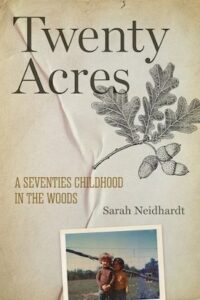 Twenty Acres: A Seventies Childhood in the Woods – Sarah Neidhardt – University of Arkansas Press – Paperback – 320 pages – 9781682262276 – $29.95 – Published March 7, 2023. Audiobook and ebook versions available at varying prices.
Twenty Acres: A Seventies Childhood in the Woods – Sarah Neidhardt – University of Arkansas Press – Paperback – 320 pages – 9781682262276 – $29.95 – Published March 7, 2023. Audiobook and ebook versions available at varying prices.
Twenty Acres is a wonderful, rewarding family memoir that will resonate both for elder veterans of the sixties and seventies “back to the land” counter culture but most especially for their now adult children, of which author Neidhardt is one. She was just a baby when her quite intelligent, middle class, young, naive parents left Colorado Springs to move to an extremely isolated part of the Arkansas Ozarks, where despite being woefully unprepared and underfunded, they managed to build a cabin and set out to live their lives and raise their children away from the materialist world they came from.
Their idealism was quickly met with the harsh realities of country life, of course. Sarah Neidhardt’s early life with her struggling parents and her siblings was not easy, and the crushing poverty and difficulties they endured as a family are reconstructed by Neidhardt as a way to understand her early life in deeply rural Arkansas. Still, the book is filled with many joyful and humorous moments – it’s not an altogether dark story, but a complex one that is filled with the ambiguities and complexities of family life in any time or place.
This story is similar to other back to the land adventures I’ve read that did not end well, or ended with the participants deflated by the rigors of a life they were never prepared for, though it is different from some because of the relatively extreme isolation the Neidhardt family experienced. Communards had it better in some ways than those who set out on their own in places where the culture was so deeply foreign to their generally urban or suburban backgrounds and counter culture values. But the underlying conflicts of culture, education, expectations, and the challenges of rural life really are common for so many of the children of the counter culture, unwilling participants in what was generally a short-lived socio-political explosion that had long lasting ramifications for its youngest and most innocent participants (even as that era’s most deeply held values and beliefs have survived and become entwined in modern culture in so many important ways).
It’s been more than fifty years since the era of the hippies, and books like this one will help set down and explain the history of that brief period of time, when so many young people thought we could change the world for the better. Talking to Sarah about her book, her family, and the process of writing their story was rewarding for me and I hope for all who listen to our conversation.
Sarah Neidhardt has worked as a bookseller, secretary, paralegal, copyeditor, and stay-at-home mother. She grew up in Arkansas and Northern California and now lives in Portland, Oregon, with her husband and teenage son.
“Disillusioned with the modern world and idealistic about living closer to nature, Sarah Neidhardt’s parents packed up from Colorado–a place that some other back-to-landers would seek out–and moved to small, isolated Fox, Arkansas to attempt living completely self-sufficiently and off-the-grid. In this memoir, Neidhardt examines her memories from that time, and also pinpoints one of the most particularly problematic parts of the back-to-the-land movement, which is that many of its participants were anchored in privilege. … A memoir infused with both empathy and inquiry.”—–Wendy J. Fox, Electric Literature
Author website here.
Buy the book here.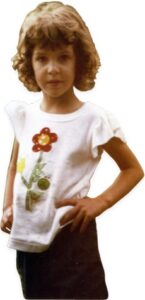

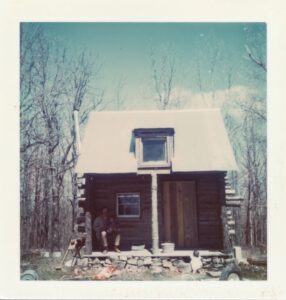
Podcast: Play in new window | Download
Robert Greenfield: Bear: The Life and Times of Augustus Owsley Stanley III
February 11, 2017 by David
Filed under Non-Fiction, WritersCast
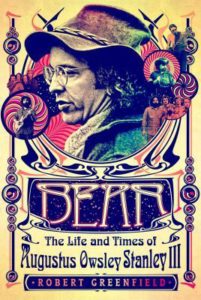 Bear: The Life and Times of Augustus Owsley Stanley III – Robert Greenfield – Thomas Dunne Books – Hardcover – 9781250081216 – 288 pages – $25.99 (ebook versions available at lower prices)
Bear: The Life and Times of Augustus Owsley Stanley III – Robert Greenfield – Thomas Dunne Books – Hardcover – 9781250081216 – 288 pages – $25.99 (ebook versions available at lower prices)
For many of us who came of age during the decade loosely known as “the sixties,” the name Augustus Owsley Stanley, AKA Owsley or Bear, remains iconic and recognizable. He is best known as the maker of some of the best LSD ever manufactured; “Owsley” branded acid could convince psychedelic adventurers that the tab on their tongues would be safe to take and would produce a good trip. And of course his role as the LSD source for the very famous “acid tests” run by writer Ken Kesey and the Merry Pranksters was well known to most hippies and fellow travelers “back in the day.”
But few then knew much else about this mythic character. Owsley, who was the scion of an iconic southern political family, known to his friends and admirers as Bear, was an individualist in an era of individualism, a deeply anti-authoritarian truth seeker, who lived his life accordingly during a time when it was all too easy to simply proclaim oneself “against the man,” but then do very little concretely to make things different. Owsley was himself a different sort of individual, his thoroughly unique mind and personality opened doors for others and changed the world in meaningful ways for thousands of people.
Owsley seems to have been everywhere and done every thing that mattered during one of the most creative and recognized periods of modern history. He was a self taught sound engineer and chemist, and later in his life a practical climate scientist and accomplished craftsperson. He was brilliant and iconoclastic, difficult and sometimes paranoid (taking lots of acid does change one’s brain chemistry).
Early on, Owsley recognized that the Grateful Dead, then just among the many early Bay Area hippie groups, was an historic band, and being in the right place at the right time, he provided the money they needed to hone their sound, and ultimately become one of the greatest bands of all time. As their founding sound engineer and musical adviser, he recorded almost all of the Dead’s greatest live performances (which have been released over the years to great acclaim), and designed the massive sound system that was known as the Dead’s signature Wall of Sound. Owsley even designed the band’s now ubiquitous logo after he realized the need to identify their equipment when the group played at live venues with other bands.
Being the central popularizer of LSD and creator of the Grateful Dead’s sound system might be sufficient accomplishments for most people, but there is much more to tell about Owsley’s life than this. Owsley’s complete life story is here brilliantly and lovingly chronicled by Robert Greenfield, himself a well traveled and accomplished veteran of sixties pop culture. This is a fine biography, compelling and sympathetic, and whether you were “there” then or not, it is well worth reading about this fascinating and perceptive individual. When I read the book, I found myself wishing that Bear was still alive and still around to tell tales and open minds. We’ll just have to make do with this story of his life and times. It’s almost enough.
Robert Greenfield is the former Associate Editor of the London bureau of Rolling Stone magazine. He is the author of several classic rock books, among them S.T.P.: A Journey Through America with the Rolling Stones, as well as the definitive biographies of Timothy Leary and Ahmet Ertegun. With Bill Graham, he is the co-author of Bill Graham Presents: My Life Inside Rock and Out, which won the ASCAP-Deems Taylor Award. He has also written novels and short fiction. His novel Temple, won the National Jewish Book Award and was a New York Times Notable Book of the Year. His book, Timothy Leary: A Biography, which he spent ten years researching and writing, is a major work of cultural history, as is another fine book, A Day In The Life: One Family, The Beautiful People, and the End of the Sixties. Greenfield lives in California.
It was a great pleasure for me to talk with him about Bear, this book, and the period that so much influenced who we are today.
Interestingly, even though Bear was killed in a car accident in 2011, his website is still up and running, and is interesting to visit.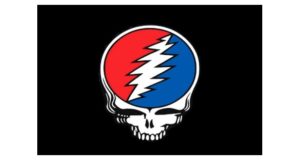
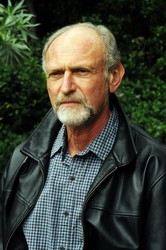
Podcast: Play in new window | Download
Clara Bingham: Witness to the Revolution
September 19, 2016 by David
Filed under Non-Fiction, WritersCast
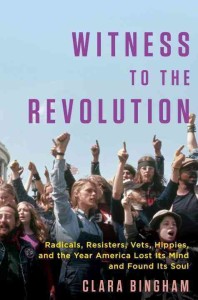 Witness to the Revolution: Radicals, Resisters, Vets, Hippies, and the Year America Lost Its Mind and Found Its Soul
Witness to the Revolution: Radicals, Resisters, Vets, Hippies, and the Year America Lost Its Mind and Found Its Soul
9780812993189 – Random House – Hardcover – $30 – (ebook versions available at lower prices)
There have been many books written about the politics and culture of the sixties, but I don’t think there has ever been a book quite like this one.
Clara Bingham is a journalist who grew up just a bit too young to join in the festivities of what is now known as “The Sixties.” That term is actually a misnomer, as most of us know, since the decade of turbulence and strife really started in the mid-sixties and ended, more or less, with the close of the Vietnam War in 1975. However it is measured, and measuring time periods in history is never easy or altogether clear, that time was full of energy, social discord, cultural change, political engagement, joy and tragedy.
Ms. Bingham had relatives and family members who were old enough to participate actively in the youth culture explosion of that time, and we are lucky that their experiences inspired her interest in this historically significant era. She took upon herself a seriously daunting task, to try to understand what happened in the culture through the words of some of its key participants. It’s an altogether brilliant, inspiring effort.
She has chosen to focus on a single year to create a lens through which to see America in the throes of cultural upheaval. The book covers the period from August 1969 to August 1970, during which there were nine thousand protests and eighty-four acts of arson or bombings across the country. It was an incredible year, one that included so many key events of the time, both at home and abroad, including the rise of the Weather Underground, the invasion of Cambodia, Woodstock, May Day in New Haven, and the massacre at Kent State – and so much more.
As an active member of the counter culture myself in those halcyon years, this book brought back many memories, and reminded me of some of the things I’d forgotten about, as well as some of the people who were so important to us in those years. There’s so much in this book, there are some events and people I had not even thought about for almost 45 years. The first-hand accounts included in this book are important and powerful. These reminiscences can help us understand an era that is so much with us still – both culturally and politically. This book can help us understand why America is still in the throes of cultural and political upheaval, and is so culturally divided. While there were many failures in the sixties, and many terrible things done in the name of good intentions and beliefs, we are awash in the cultural forces unleashed then. The baby boomers who created the youth culture of the sixties are aging out of the population now, but the effects of that time continue to reverberate today.
There is so much of importance to be found in this book. I was really pleased to have a chance to speak to Clara about Witness to the Revolution. It’s an incredible effort and I hope it will help spur further conversations about the Sixties and what we can learn from that incredible era.
If you want to listen to Clara reading from the book, there’s a short segment over in Author’s Voices.
Podcast: Play in new window | Download
Anna Godbersen: The Blonde (a novel)
September 21, 2014 by David
Filed under Fiction, WritersCast
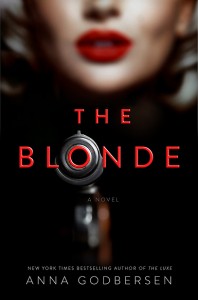 The Blonde – a novel – 978-1602862814 – paperback – Weinstein Books – $16 – ebook editions available
The Blonde – a novel – 978-1602862814 – paperback – Weinstein Books – $16 – ebook editions available
Author Anna Godbersen has come up with a terrifically compelling novelistic premise – Marilyn Monroe as a mostly unwilling but still cunning spy for the Russians, whose task is to get something on President Kennedy the Russians can use. In return, her mysterious and very persuasive contact, who convinces MM that her father was also working for the cause of international communism, will connect her to the one man in the world she truly cares about.
It’s a great reinvention, weaving together known elements of Marilyn’s life and characters like Arthur Miller, Joe DiMaggio, JFK, and many others, with the addition of some invented characters and a hefty dose of imagination, Godbersen is able to draw out an entertaining and compelling thriller. In particular, I loved the way she empowers Marilyn, and shows her to be a brilliant, albeit often desperate character, who is able to far better understand the motives and behaviors of men and women than most, and to do what she must to achieve her own goals and protect those she loves.
Along the way, Godbersen draws compelling portraits of the key players in Marilyn’s life and times, and the events she lived through. Marilyn becomes human, empathetic, and strong. And she tells a great story – no matter how well you know the actual history, you will enjoy this novel and its unfolding mystery. Could Marilyn have been connected to the conspiracy to assassinate Kennedy, perhaps in a surprising way? Do you really believe that Marilyn Monroe committed suicide or died of an overdose of pills? Godbersen’s version of the story we will never know for sure in some surprising ways makes more sense than the history we do know.
And the book does have a wonderful cover.
Anna Godbersen was born in Berkeley, California, attended Barnard College, and worked for Esquire Magazine. She is best known as author of a number of young adult best sellers for Alloy Entertainment, include Luxe and Bright Young Things. Author website here. More about the book here.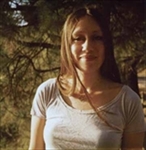
Podcast: Play in new window | Download
Nick Schou: Orange Sunshine: The Brotherhood of Eternal Love and Its Quest to Spread Peace, Love, and Acid to the World
October 13, 2010 by David
Filed under Non-Fiction
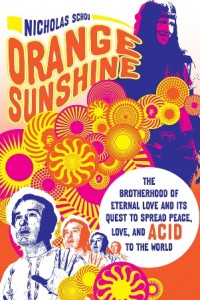 978-0312551834 – St. Martin’s Press – Hardcover – $24.99
978-0312551834 – St. Martin’s Press – Hardcover – $24.99
Nick Schou writes for the excellent OC Weekly (one of the several Village Voice papers) based in Orange County, California, home of Disneyland, Knott’s Berry Farm, UC Irvine, the Los Angeles Angels of Anaheim, Little Saigon, and of course seemingly endless tracts of California suburbia. But Orange County in the 1960’s was also the birthplace of some of the most amazing scenes of hippiedom, and the little known “Brotherhood of Eternal Love.”
In this book, Schou tells their story from beginning to end, and it is a pretty incredible saga, including what was probably the largest LSD manufacturing and distribution operation of all time, a world wide hashish and marijuana smuggling cartel, incredible tales involving Timothy Leary, and much, much more.
Known as “Hippie Mafia,” the Brotherhood began in the mid-1960’s as a small band of surfers (and in many cases petty criminals) in Southern California. After they discovered LSD, they took to Timothy Leary’s mantra of “Turn on, tune in, and drop out” and resolved to make that vision a reality by becoming the biggest group of acid dealers and hashish smugglers in the nation, and literally providing the fuel for the psychedelic revolution in the process. In Orange Sunshine, Schou journeys deep inside the Brotherhood, combining exclusive interviews with many of the group’s surviving members, former hangers on and supporters, and interstingly, the law enforcement establishment who pursued them and by doing so helped to launch what has now become an institutionalized government war on drugs.
Schou tells a compelling story of sex, drugs, and rock ‘n’ roll (and more drugs) that runs from Laguna Beach to Maui to Afghanistan, and a time when America moved from the golden era of peace and free love into the much darker time that soon followed, marked by hard drugs, international crime and paranoia.
Talking to Nick Schou gave me a chance to explore with him some of the background to the book, and to talk about the large amount of research he did to put it together, and the challenges he faced in getting some of the participants to even tell him what they did in those days. We also talked about some of the more startling elements of the story of the Brotherhood, their involvement with Timothy Leary and Ram Dass, Orange County then and now, and much more.
This is a fascinating story, one that helps us understand some of the complex issues that began in the sixties and are still with us today. This kind of grassroots history is important to document as it can give us all a chance to better comprehend the always diverse and sometimes simply amazing culture in which we live.
Podcast: Play in new window | Download
E.M. Broner: The Red Squad
March 28, 2010 by David
Filed under Fiction, WritersCast
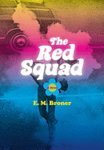 978-0307-37791-3 – Hardcover – Pantheon – $24.00 (also available as an e-book; a paperback edition will be out in July 2010 – 978-0307-45584-0 – $15.00)
978-0307-37791-3 – Hardcover – Pantheon – $24.00 (also available as an e-book; a paperback edition will be out in July 2010 – 978-0307-45584-0 – $15.00)
This is a sometimes hilarious, always engaging, warm and sexy novel about a group of midwestern academics from the sixties, told from the vantage point of Anka Pappas, who, forty years after this fraught period in her life, finds out the entire group was under surveillance by the federal, state and local governments. The story weaves together past and present, as Anka reconnects with her friends and associates – much drama, emotion, and memory unfolds, demonstrating that the past is not at all a dead or forgotten issue. It’s a complicated story that Ms. Broner tells quite skillfully, keeping alot of balls in the air (it does help to have a cast of characters in the front of the book to which the reader can refer, as there is alot of perspective changing going on, sometimes at very high speed).
Broner knows that the political engagement of the sixties and early seventies can not be seen as an isolated period. It is deeply connected to our present. And through this book, she shows us that the issues that engaged the young activists of that earlier period are still with us today. The power relationships in our society ultimately have not been changed; there is much work to be done, and much more engaged life to be lived.
There’s no preaching here, this is a book written by a smart, accomplished writer, who knows how to make a story work, and who clearly had a great time writing this book. Talking to Esther Broner about the book was alot of fun for me. In this interview, she talks about this book and how it relates to her own life. We talk about politics, the nature of fiction and nonfiction, memoir and story, reality and imagination, appearance and reality, and of course the connection between the activism of the 1960’s and how it relates to us today.
This is an enjoyable, funny book that carries a powerful political and emotional punch, written by a skilled and experienced author whose work deserves a wide audience.
Podcast: Play in new window | Download
Kermit Moyer: The Chester Chronicles
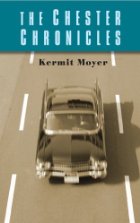
978-1579621940 – Hardcover – Permanent Press – $28.00
What a pleasure it was to discover this writer. The Chester Chronicles is a collection of interlocking stories that serve to create what is essentially a coming-of-age novel. We are introduced to Chet Patterson as a pre-adolescent and stay with him as he grows unto early manhood. He is the son of a military man, so at the heart of the book is the peripatetic journey of a budding intellectual, who often does not fit in with the crowd and is always in search of both his internal and his social identity. There are lots of adventures along the way, many having to do with girls and sex, boys and drinking.
There are certainly elements here that will be most familiar to people of a certain age, who lived through the ’50s and ’60s, especially the defining moments of those times. But as with any good book, the character and his story transcend the specifics of the place and time in which the book is set. The point is, after all, for us to see him as a person on a journey, and to understand where he has been, and perhaps also, therefore, to understand who he will become. As the author says of himself and of his character, he is “plagued with Oedipal anxieties and existential doubt, yet nonetheless convinced of his heroic destiny.” There are several moment in the book that can make the reader laugh out loud, and there are others where it is equally impossible not to deeply feel his pain. I’d say that’s a pretty good accomplishment for any writer.
In my interview with Kermit Moyer, we talked about some of the autobiographical elements of the book, some of the stories which stood out for me as a reader, as well as some of the characters in the book that affected me the most. We talked quite a bit about autobiographical fiction and how this book fits into the tradition of fictionalized autobiography and works transformationally both for the author and the reader. Moyer provides an interesting explanation of his writing which I hope will help introduce new readers to his fine writing.
Podcast: Play in new window | Download
